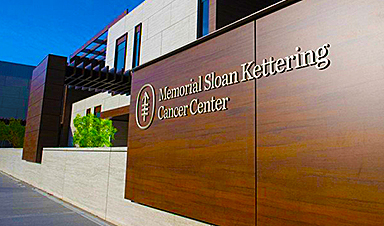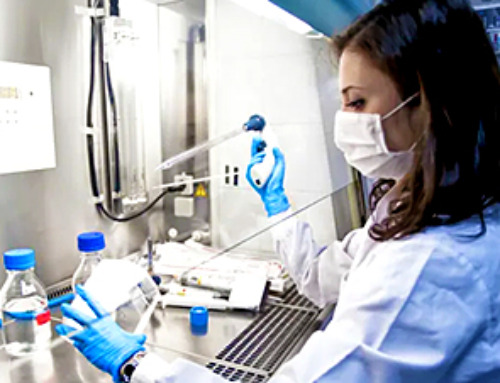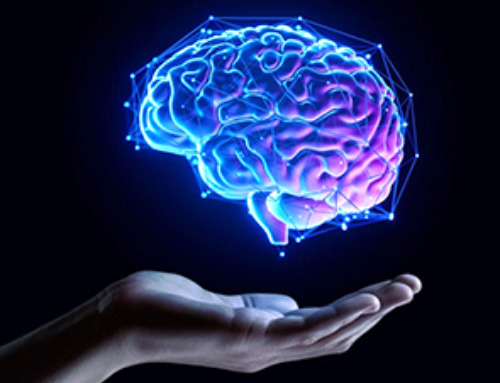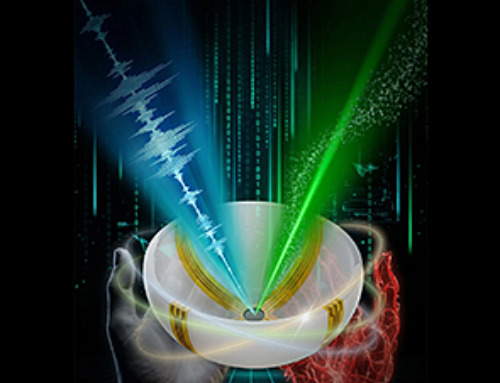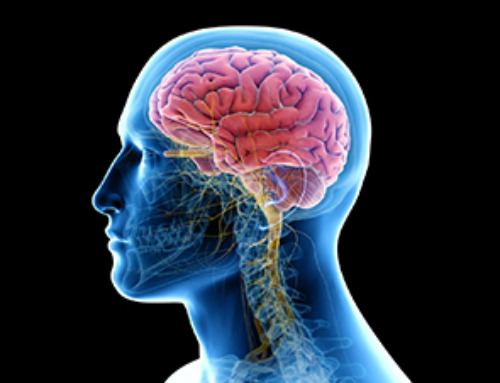MSK researchers discovered that the innate immune system's chronic activation due to issues in the Mre11 complex can lead to cancer, highlighting new therapeutic targets.
In addition to defending against pathogens, the body's innate immune system plays a surprising role in safeguarding genome stability — a function with significant implications for cancer development, as researchers at Memorial Sloan Kettering Cancer Center (MSK) are uncovering.
In a pair of recent papers, scientists in the lab of molecular biologist John Petrini, PhD, showed that innate immune signaling plays a key role in maintaining genome stability during DNA replication. Furthermore, the researchers showed that chronic activation of these immune pathways can contribute to tumor development in a mouse model of breast cancer.
Not only do the findings add vital insights to our understanding of fundamental human biology, says Dr. Petrini, they may also shed new light on tumor initiation and present potential opportunities for new therapies.
"Living organisms have evolved complex pathways to sense, signal, and repair damaged DNA," he says. "Here we're learning new things about the role of the innate immune system in responding to that damage — both in the context of cancer and also in human health more generally."
How Chronic Activation of the Innate Immune System Can Lead to Cancer
The newest paper, led by first author Hexiao Wang, PhD, a postdoctoral fellow in the Petrini Lab, and published in Genes & Development, reveals a connection between innate immune signaling and tumor development in breast tissue. And, Dr. Petrini says, the data suggest that when instability arises in the genome, chronic activation of the innate immune system can greatly increase the chances of developing cancer.
The study focused on a protein complex called the Mre11 complex, which plays a pivotal role in maintaining the stability of the genome by sensing and repairing double-strand breaks in DNA.

To study how problems with the Mre11 complex can lead to cancer, the team manipulated copies of the protein in mammary tissue organoids (miniature lab-grown model organs) and then implanted them into laboratory animals.
When oncogenes (genes known to drive cancer) were activated in these mice, tumors arose about 40% of the time, compared with about 5% in their normal counterparts. And the tumors in the mice with mutant Mre11 organoids were highly aggressive.
The research further showed that the mutant Mre11 led to higher activation of interferon-stimulated genes (ISGs). Interferons are signaling molecules that are released by cells in response to viral infections, immune responses, and other cellular stressors.
They also found that the normally tightly controlled packaging of DNA was improperly accessible in these organoids — making it more likely that genes will get expressed, when they otherwise would be inaccessible for transcription.
"We actually saw differences in the expression of more than 5,600 genes between the two different groups of mice," Dr. Petrini says.
And strikingly, these profound effects depended on an immune sensor called IFI205.
When the organoids were further manipulated so they would lack IFI205, the packaging of DNA returned almost to normal, and the mice developed cancer at essentially the same rate as normal mice.
"So what we learned is that problems with Mre11 — which can be inherited or develop during life like other mutations — can create an environment where the activation of an oncogene is much more likely to lead to cancer," Dr. Petrini says. "And that the real lynchpin of this cascade is this innate immune sensor, IFI205, which detects that there's a problem and starts sending out alarm signals. In other words, when problems with Mre11 occur, chronic activation of this innate immune signaling can significantly contribute to the development of cancer."
New Understandings Could Pave the Way for Future Treatments
The work builds on a previous study, led by Christopher Wardlaw, PhD, a former senior scientist in the Petrini Lab, that appeared in Nature Communications.
That study focused on the role of the Mre11 complex in maintaining genomic integrity. It found that when the Mre11 complex is inactive or deficient, it results in the accumulation of DNA in the cytoplasm of cells and in the activation of innate immune signaling. This research primarily looked at the involvement of ISG15, a protein made by an interferon-stimulating gene, in protecting against replication stress and promoting genomic stability.
"Together, these studies shed new light on how the Mre11 complex works to protect the genome when cells replicate, and how, when it's not working properly, it can trigger the innate immune system in ways that can promote cancer," Dr. Petrini says.
By shedding light on the interrelationships between these complex systems and processes, the researchers hope to identify new strategies to prevent or treat cancer, he adds, such as finding ways to short-circuit the increased DNA accessibility when Mre11 isn't working properly.
Reference: "Chronic interferon-stimulated gene transcription promotes oncogene-induced breast cancer" by Hexiao Wang, Claudia Canasto-Chibuque, Jun Hyun Kim, Marcel Hohl, Christina Leslie, Jorge S. Reis-Filho and John H.J. Petrini, 1 October 2024, Genes & Development.
DOI: 10.1101/gad.351455.123
The study was supported by the National Institutes of Health (GM59413, R35GM136278, P30CA008748) and the MSK Center for Experimental Immuno-Oncology Scholars Program.
News
COVID-19 viral fragments shown to target and kill specific immune cells
COVID-19 viral fragments shown to target and kill specific immune cells in UCLA-led study Clues about extreme cases and omicron’s effects come from a cross-disciplinary international research team New research shows that after the [...]
Smaller Than a Grain of Salt: Engineers Create the World’s Tiniest Wireless Brain Implant
A salt-grain-sized neural implant can record and transmit brain activity wirelessly for extended periods. Researchers at Cornell University, working with collaborators, have created an extremely small neural implant that can sit on a grain of [...]
Scientists Develop a New Way To See Inside the Human Body Using 3D Color Imaging
A newly developed imaging method blends ultrasound and photoacoustics to capture both tissue structure and blood-vessel function in 3D. By blending two powerful imaging methods, researchers from Caltech and USC have developed a new way to [...]
Brain waves could help paralyzed patients move again
People with spinal cord injuries often lose the ability to move their arms or legs. In many cases, the nerves in the limbs remain healthy, and the brain continues to function normally. The loss of [...]
Scientists Discover a New “Cleanup Hub” Inside the Human Brain
A newly identified lymphatic drainage pathway along the middle meningeal artery reveals how the human brain clears waste. How does the brain clear away waste? This task is handled by the brain’s lymphatic drainage [...]
New Drug Slashes Dangerous Blood Fats by Nearly 40% in First Human Trial
Scientists have found a way to fine-tune a central fat-control pathway in the liver, reducing harmful blood triglycerides while preserving beneficial cholesterol functions. When we eat, the body turns surplus calories into molecules called [...]
A Simple Brain Scan May Help Restore Movement After Paralysis
A brain cap and smart algorithms may one day help paralyzed patients turn thought into movement—no surgery required. People with spinal cord injuries often experience partial or complete loss of movement in their arms [...]
Plant Discovery Could Transform How Medicines Are Made
Scientists have uncovered an unexpected way plants make powerful chemicals, revealing hidden biological connections that could transform how medicines are discovered and produced. Plants produce protective chemicals called alkaloids as part of their natural [...]
Scientists Develop IV Therapy That Repairs the Brain After Stroke
New nanomaterial passes the blood-brain barrier to reduce damaging inflammation after the most common form of stroke. When someone experiences a stroke, doctors must quickly restore blood flow to the brain to prevent death. [...]
Analyzing Darwin’s specimens without opening 200-year-old jars
Scientists have successfully analyzed Charles Darwin's original specimens from his HMS Beagle voyage (1831 to 1836) to the Galapagos Islands. Remarkably, the specimens have been analyzed without opening their 200-year-old preservation jars. Examining 46 [...]
Scientists discover natural ‘brake’ that could stop harmful inflammation
Researchers at University College London (UCL) have uncovered a key mechanism that helps the body switch off inflammation—a breakthrough that could lead to new treatments for chronic diseases affecting millions worldwide. Inflammation is the [...]
A Forgotten Molecule Could Revive Failing Antifungal Drugs and Save Millions of Lives
Scientists have uncovered a way to make existing antifungal drugs work again against deadly, drug-resistant fungi. Fungal infections claim millions of lives worldwide each year, and current medical treatments are failing to keep pace. [...]
Scientists Trap Thyme’s Healing Power in Tiny Capsules
A new micro-encapsulation breakthrough could turn thyme’s powerful health benefits into safer, smarter nanodoses. Thyme extract is often praised for its wide range of health benefits, giving it a reputation as a natural medicinal [...]
Scientists Develop Spray-On Powder That Instantly Seals Life-Threatening Wounds
KAIST scientists have created a fast-acting, stable powder hemostat that stops bleeding in one second and could significantly improve survival in combat and emergency medicine. Severe blood loss remains the primary cause of death from [...]
Oceans Are Struggling To Absorb Carbon As Microplastics Flood Their Waters
New research points to an unexpected way plastic pollution may be influencing Earth’s climate system. A recent study suggests that microscopic plastic pollution is reducing the ocean’s capacity to take in carbon dioxide, a [...]
Molecular Manufacturing: The Future of Nanomedicine – New book from Frank Boehm
This book explores the revolutionary potential of atomically precise manufacturing technologies to transform global healthcare, as well as practically every other sector across society. This forward-thinking volume examines how envisaged Factory@Home systems might enable the cost-effective [...]
